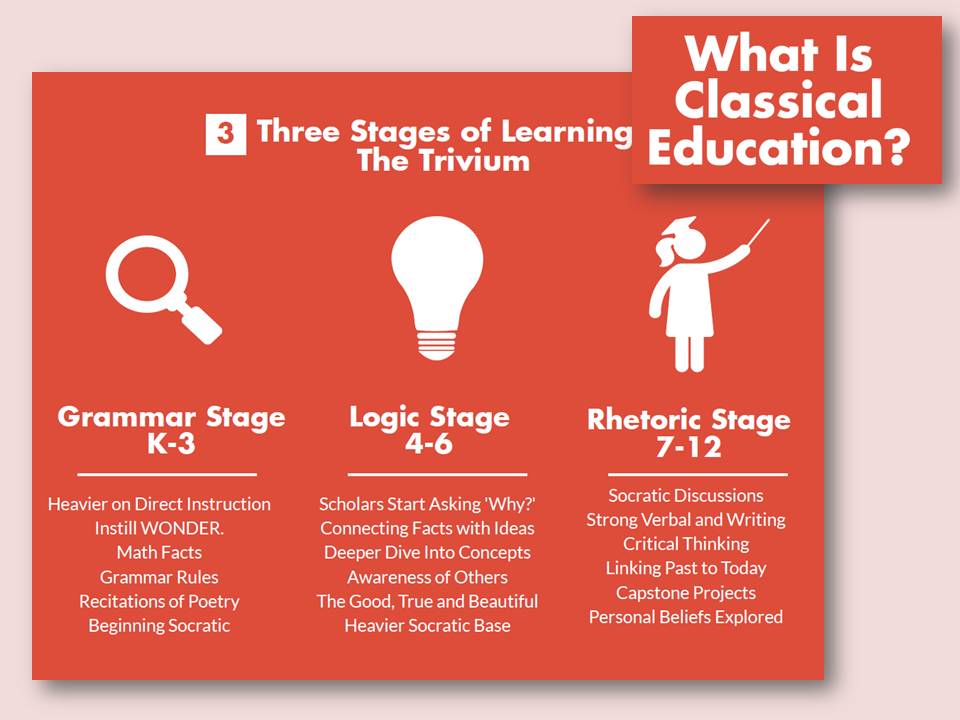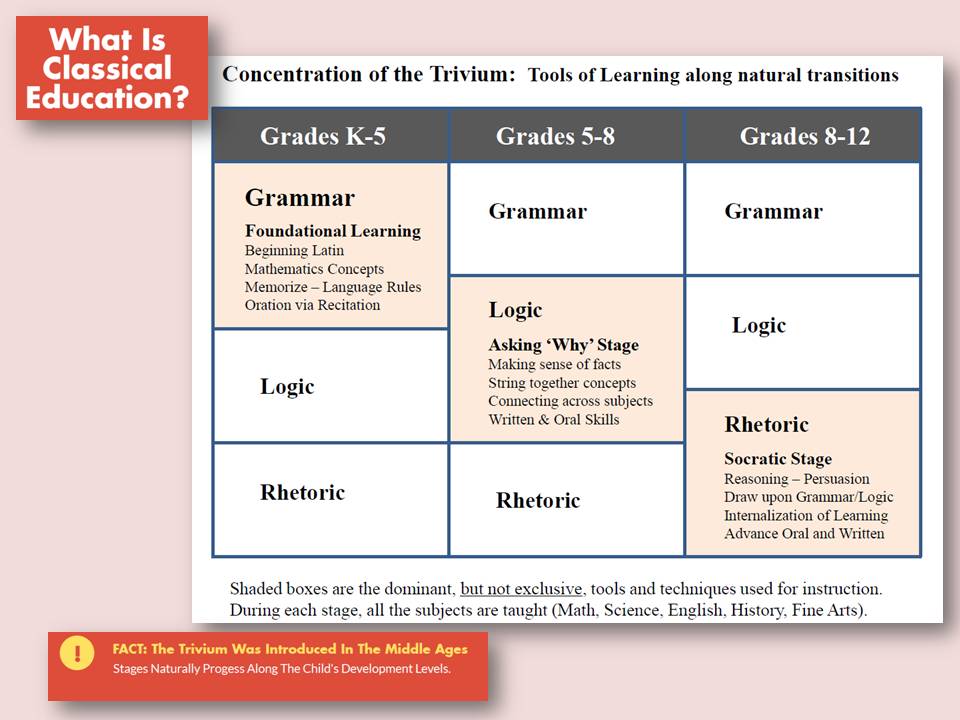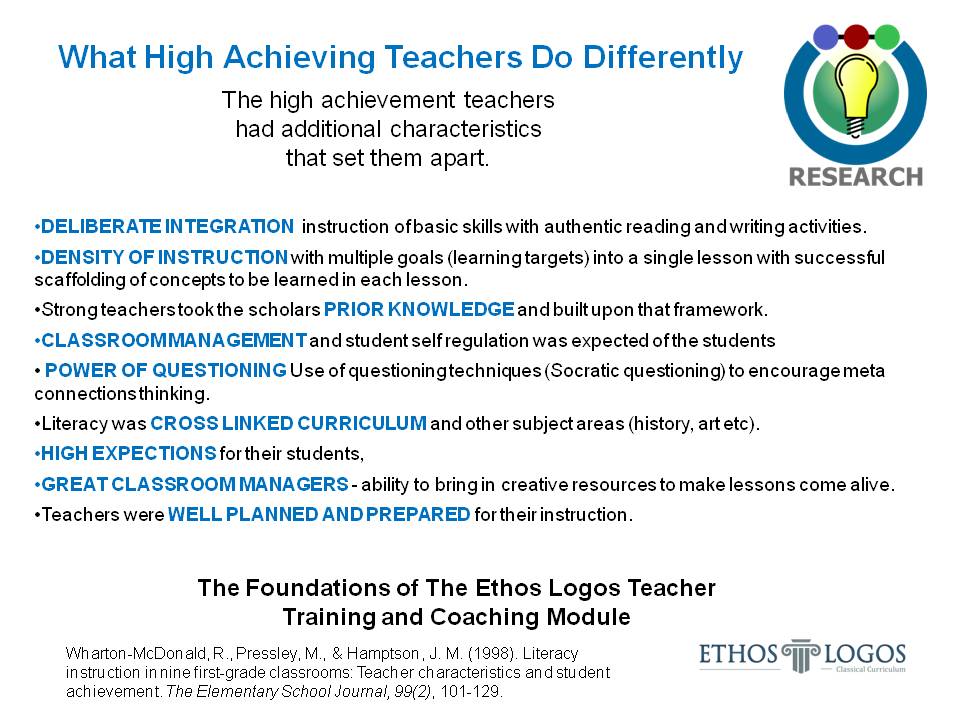Classical education is an intentional return to the ancient goal of education which was the teaching of children to think and learn for themselves. Classical education is about equipping students with the tools of learning. The Classical approach to education is rooted in the ancient medieval concept of the Trivium.
As a teacher new to Classical, the Ethos Logos PD program introduces the concepts behind Classical education to teachers in a logical and deliberate approach. Over time, the concepts advance and the teacher's skills in the Classical model improve with experience, coaching, and practice.
Each Classical Module is taught based on the portion of the Trivium (grammar stage, logic stage, or rhetoric stage) the teacher works in.
 Grammar Stage Teaching Focus
Grammar Stage Teaching Focus
During the Grammar stage, the focus on instruction is to start young students on the road to thinking. This phase is an emphasis on basic knowledge, facts, and rules needed in order to connect dots later in their education. The phase of teaching has a higher degree of direct instruction and begins to introduce the early stages of Socratic learning. This stage of learning compliments young scholars because they are information sponges where memorization comes naturally.
Logic Stage Teaching Focus
The Logic Stage is Mastery of the ability to REASON. The facts learned in earlier grades are used to focus on critical thinking skills with a heavy emphasis on comprehension of rich text and the ability to write and communicate their ideas in a highly effective manner. Beginning in these middle school years, scholars begin to think abstractly and grow in their reasoning and analytical thinking abilities. The teaching skills involve less "sage on the stage" and more "guide on the side" whereby the teacher is facilitating the learning more than leading from the front of the class. The teachers in the Logic stage focus heavier on Socratic discussions and use source documents to travel back in time with their students.
The Rhetoric Stage Teaching Focus
The final stage of the K1-2 model of Classical education is the culmination of the time spent gathering facts, wrestling with how everything ties together, and being able to take all these skills and Persuade others of their ideas. During the rhetoric stage, there is an emphasis on expression, application, and articulation of ideas. Rhetoric teachers fine-tune their instruction to introduce abstract thinkers and encourage an interest in self-expression, communication, and creativity. These young adults are coming into their own and the role of the teacher is to encourage that independence.
Classical Teaching Training Modules Include:
History using S.P.R.I.T.E. Method
Thematic Units Done Right
Making Connections Across Curriculum
Arts Integration in the Classroom
Advanced Socratic Discussion
Copybooks – Beginning to Advanced
Charlotte Mason in the Classroom
Nature Study for Science Instruction
Recitation – Narration – Picture Study
Advanced Writing Workshops
Elementary – Read Alouds and their Impact
Unlearn! The Power of Slowing Down your Instruction and Deeper Dives

The Research Supports Classical Education


